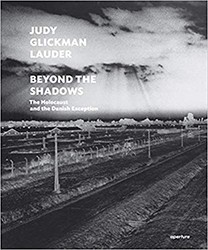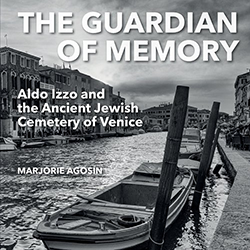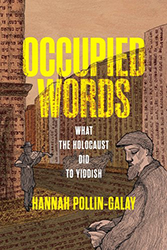In his acclaimed graphic memoir Maus, Art Spiegelman succinctly expresses one of the problems of representing the Holocaust: “I know this is insane, but I somehow wish I had been in Auschwitz with my parents so I could really know what they lived through! I guess it’s some kind of guilt about having had an easier life than they did.”
Spiegelman’s admission ultimately puzzles over how writers lacking a direct connection to the Holocaust can write meaningfully about it. What does it mean in the US, where we have a history of genocide of Indigenous Americans and enslavement of African Americans, and a current internment of refugees coming from the Southwest border? What might the Holocaust mean to writers who are not Jewish, and/or who identify as BIPOC and/or LGBTQ+?
These are precisely the questions that editors Howard Debs and Matthew Silverman explore in New Voices: Contemporary Writers Confronting the Holocaust. They invite more than fifty fiction writers, poets, and essayists to contribute a piece in response to a photograph depicting a moment in the Third Reich and the Holocaust’s historical trajectory. This juxtaposition of forms asks both writer and reader to toggle between past and present in an immediate, thought-provoking way.
In the first of four sections, Los Angeleno poet Alejandro Escudé comments on a photo in which German Jews wait at the Palestine emigration office:
… But everything has always been takeover.
Booming militant voices. Everywhere the promise of patriotism
and the slow, aching candles of religion. Is the ceiling light on
in the corner of the photo? That Guernica lamp?
A few pages later, Korean American poet Su Wong contemplates a photo of Jewish refugees arriving in New York and wonders:
Over & over, why we insist on infliction — this animal
drive from crusades to battlefields to darkened
chambers — we refuse to tend our gardens …
Many well-known Jewish writers are also featured in this volume, among them the flash fiction stylist Mark Budman; poets Marge Piercy, Ellen Bass, Linda Pastan, Steven Sher, and Amy Gerstler; and poet-scholar Joy Ladin in conversation with the psychiatrist and survivor Anna Ornstein.
Equally important are the ways in which the anthology uplifts voices that are rarely heard in relation to the Holocaust. In her lyric essay, “Moral Lessons of Remembering the Holocaust: A Muslim Response,” Mehnaz Afridi tells the story of Noor Inayat Khan, a Muslim woman who worked as a wartime secret agent and who was eventually murdered by the Gestapo. Afridi’s essay observes:
So, how can we forget that these individuals braved their lives in the midst of murder and risked everything in the name of Islam? Islam and Judaism share the same moral lesson of humanity in their respective sacred texts.
This remarkable volume at once offers snapshots from history and captivating, and at times inspiring, lyrical responses to an event we are still seeking to understand — and one we’re trying not to repeat.
Stephanie Barbé Hammer’s is a 7‑time Pushcart Prize nominee in fiction, nonfiction, and poetry. Her new novel Journey to Merveilleux City appears with Picture Show Press.





